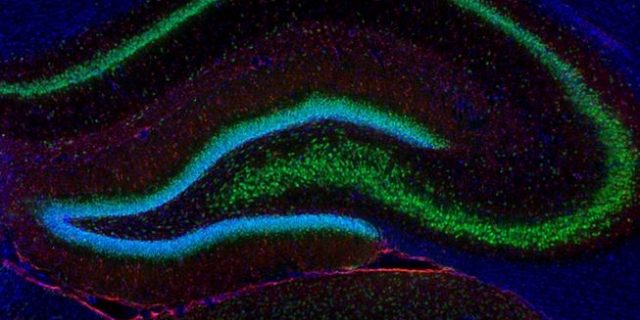
By
Neal Melvin, Hugo Lehman, Benjamin Lamont, Jade Smith, and Avery Burgar
February 2023
Print Version
What you need to know
How can memories be transformed from fleeting to essentially permanent? The conversion of short-term memories (STMs) to long-term memories (LTMs), a process referred to as consolidation, is a fundamental problem in neuroscience. Our group is interested in determining the molecular mechanisms that underlie this process, more specifically, whether or not a protein called Rbm3 contributes to the protein synthesis-dependent nature of memory consolidation.
Why this research is important
LTM formation requires brain cells to produce new proteins after a learning event, whereas STMs do not. Understanding the molecules that coordinate this selective protein synthesis during consolidation is an important problem to solve from both an innate interest perspective and a medical perspective, as several brain disorders (e.g., the dementias) have LTM deficits as a central symptom. Discovering the molecules that facilitate consolidation could therefore lead to potential medical treatments.
How this research was conducted
In collaboration with Dr. Hugo Lehmann’s group at Trent University, we have been analyzing the brains of rats that have been trained to form an LTM. This was accomplished using a task called contextual conditioning, in which rats learn that an initially neutral context (a box) comes to predict the onset of an aversive stimulus (a mild foot shock). Brain samples were then collected from the rats at different time points after this conditioning, during which the molecular processes underlying consolidation are known to occur. Our first goal was to analyze whether the instructions to produce the Rbm3 protein (referred to as messenger RNA, or mRNA) were quantitatively altered under these conditions.
What the researchers found
Benjamin Lamont conducted the experiments that measured the levels of Rbm3 mRNA in rat brains at different times after learning. He found that, relative to control rats that did not receive conditioning, there was a delayed decrease in Rbm3 mRNA. One hour after learning, these levels were comparable to controls. However, after 1.5 hours and up to 24 hours, the levels of Rbm3 mRNA decreased by one-third. Our next experiments will measure the levels of the corresponding Rbm3 protein in these conditions, as well as the levels of several other biochemically-related molecules. Our work so far shows that Rbm3 can be altered in brains undergoing memory consolidation.
How this research can be used
These important first steps will help us determine if Rbm3 plays an instructive role in stimulating protein synthesis as a result of forming an LTM. This will further our knowledge of how molecular mechanisms of memory formation are regulated and may therefore provide an opportunity for future medical intervention in memory disorders.
Acknowledgements
We would like to acknowledge BURC for a Faculty Grant to fund this work.
About the Researchers
Keywords
- animal models
- consolidation
- memory formation
- protein synthesis
Editor: Christiane Ramsey
Read more BU Research
Research at Brandon University follows comprehensive policies designed to safeguard ethics, to ensure academic integrity, to protect human and animal welfare and to prevent conflicts of interest.





